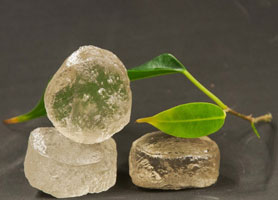Versalis and Genomatica produce bio-rubber with bio-butadiene from sugars

Italian company Versalis (Eni), a European producer in the polymers and elastomers industry, and US-based bioengineering solutions company Genomatica have successfully advanced to pilot-scale production of bio-butadiene (bio-BDE) from fully renewable feedstock. Versalis used this bio-BDE to make bio-rubber, specifically, bio-polybutadiene (bio-BR).
The companies say these accomplishments represent a remarkable milestone for the rubber industry, by enabling an improved technological and sustainability footprint; and to the broader industry for butadiene, one of the most widely-used chemicals in the world, with over 10 million tonnes/year produced.
The success of this innovative undertaking results from a newly-developed process for the on-purpose production of butadiene which uses various types of sugars as feedstock, rather than the traditional use of hydrocarbon feedstocks. The project started with the establishment of a technology joint venture between Versalis and Genomatica in early 2013. The joint venture – with Versalis having the majority stake - has developed a complete process to make bio-BDE and plans to license the resulting technology.
The joint venture uses the proven and complementary strengths of both companies. Versalis and Genomatica together determined that 1,3-butanediol (1,3-BDO) was the most suitable intermediate to produce bio-BDE. Genomatica applied its ‘whole-process’ systems approach to bioengineering to develop a microorganism that produces 1,3-BDO in a way that enables cost-efficient, scalable fermentation, recovery and subsequent process operations.
Versalis leverages its industrial process engineering and catalysis capabilities, plus expertise in overall polymer production, to purify the 1,3-BDO, dehydrate it and then purify the resulting butadiene. Versalis has produced several kilograms of butadiene from 1,3-BDO made in 200 litre fermenters at its research centres at Novara and Mantova, and then made bio-polybutadiene, at the Ravenna R&D centre, using both anionic and Ziegler-Natta catalysis.
Initial testing of the bio-BDE and bio-BR demonstrates good compatibility with industry standards. Versalis is continuing to test the bio-BDE within its other proprietary rubber and plastics downstream technologies such as SBR (Styrene-Butadiene Rubber), SBS (Styrene-Butadiene-Styrene Rubber) and ABS (Acrylonitrile Butadiene-Styrene).
The partners say that the accomplishments demonstrate the common vision on the potential of this project: access to on-purpose butadiene from renewables will establish a competitive advantage and will ensure a strategic raw material from alternative feedstock, contributing at the same time to drive a greater sustainability profile for downstream applications in the plastics and rubber businesses.
(PRA)Copyright (c) 2016 www.plasticsandrubberasia.com. All rights reserved.








































